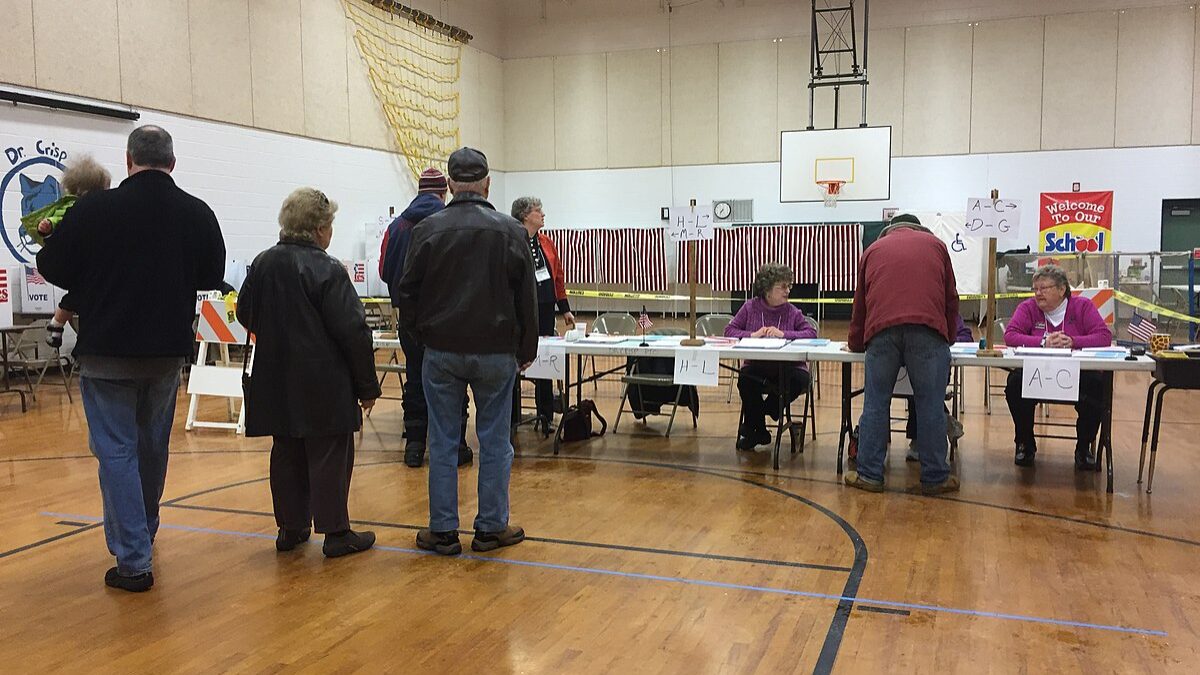
Democrats don’t just attempt to interfere in the electoral process when their own candidates are involved — turns out, they meddle in Republican elections too. That’s exactly what they’re gearing up to do in New Hampshire’s upcoming GOP presidential primary in favor of Nikki Haley, the closest thing they can find to a Democrat in the Republican primary election.
In recent days, legacy media operatives have been suggesting Democrat-leaning unaffiliated voters could cast their ballots for the former South Carolina governor in the Granite State’s semi-closed primary on Jan. 23. The tactic reflects a strategy Haley herself bragged about when she told reporters last month: “If we get independents, if we get conservative Democrats, that’s what the Republican Party should pursue. Our goal is to get as many people in the tent as we can.”
While polls are often inaccurate and used to shape as much as reflect public opinion, recent surveys have shown Haley within striking distance of former President Donald Trump in New Hampshire. These polls, according to NBC News, also reportedly show the former United Nations ambassador “ahead of Trump among independent voters, getting about half of her total support from that group.”
In New Hampshire, “undeclared” voters are authorized to vote in any party’s state or presidential primary of their choosing, with state law requiring these individuals “to choose either a Democratic or Republican ballot when [they] go to vote.” When voting in a party’s primary, these unaffiliated voters are then registered to become a member of that party “unless [they] fill out a card or sign a list to return to undeclared status with the supervisors of the checklist before leaving the polling place.” A plurality of New Hampshire voters — 4 in 10 — are unaffiliated, with the New Hampshire Bulletin reporting in October that “[n]early 4,000 New Hampshire Democratic voters changed their party affiliation” to Republican or “undeclared” ahead of Tuesday’s primary.
The state also permits same-day voter registration.
Democrats’ hope is that enough left-leaning unaffiliated voters will cast their ballots for Haley to upset Trump in the Granite State, after testing out the strategy during Monday’s Iowa GOP caucuses, where Trump’s lead over Haley and other candidates was far wider. Slightly different than New Hampshire, the Hawkeye State authorizes “day-of party registration,” which permits eligible voters to register with and vote in whichever party caucus they so choose. Iowa law also allows for same-day voter registration.
While Trump won Iowa by a comfortable margin and Haley finished a distant third, that doesn’t mean the state’s allowance of “crossover” voting didn’t juice the South Carolina governor’s final vote totals in select localities. Reported results indicate Haley won Johnson County — “one of the bluest counties in the state” and the only Iowa locality Trump did not win — by one vote. While it’s currently unclear “how many … voters registered Monday specifically to caucus,” recent data collected by the Johnson County Auditor’s Office “shows 39,216 registered Democrats in the county” compared to 13,948 registered Republicans and 21,475 registered voters who “do not have a party.”
Preliminary election results show 3,578 Johnson County voters cast ballots in Monday’s GOP caucus.
Haley isn’t the first GOP presidential candidate to use outside votes to try and win New Hampshire’s primary, however. Sen. John McCain courted the state’s independents to defeat then-Gov. George W. Bush during the 2000 Republican presidential race. According to The New York Times, “More than 4 in 10” voters “said they were independents,” with “[s]ix in 10 of those independents vot[ing] for Mr. McCain [and] fewer than 2 in 10” supporting Bush.
Whether Haley’s New Hampshire gambit pays off or not, the state’s lax laws make it easy for left-leaning voters who aren’t Republicans the morning of Election Day to interfere in Republican primaries, or for non-Democrats to do the same in Democrat primaries. A vote cast for Haley in New Hampshire by a Democrat-leaning independent seeking to disrupt the GOP presidential primary, for example, essentially negates a vote cast by a conservative supporting Trump or Ron DeSantis.
By permitting unaffiliated voters to vote in their party primaries, states like New Hampshire and Iowa are opening the door for partisans to disrupt their political opponents’ candidate-selection process.








